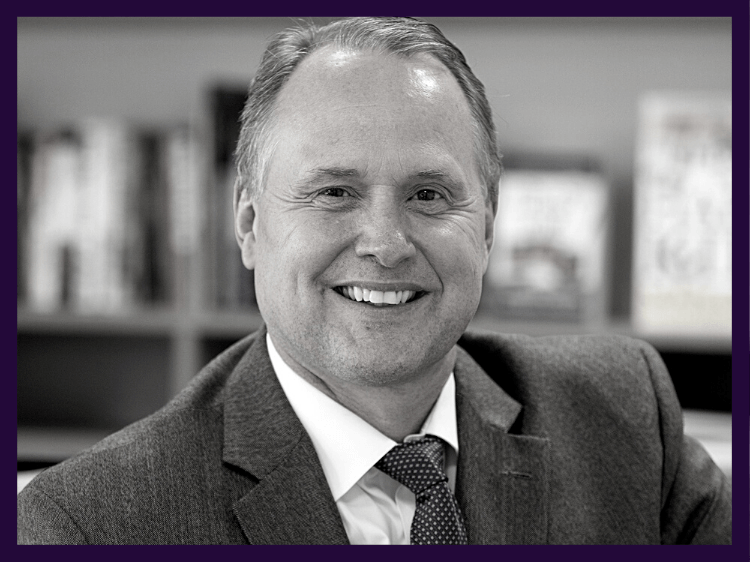The 7 Habits of Highly Effective People, Revisited
How you can use the classic business book in today's job market.

Sean Covey updated the classic 7 Habits of Highly Effective People
Chances are you weren’t yet in the workforce 30 years ago when Stephen R. Covey’s The 7 Habits of Highly Effective People first appeared, but you’ve probably heard of it (or read it) anyway. The book has sold over 40 million copies worldwide, making it one of the bestselling books of all time.
A new 30th-anniversary edition, by the late Stephen R. Covey, has been updated with fresh insights by his son, Sean Covey, expanding on the original and bringing it up to date. “The more challenging society’s problems become,” Sean Covey says, “the more relevant the seven habits are to a new generation of leaders and professionals.” Although the book is packed with advice for parents, couples, families, and friends, many of its pages focus on using Covey’s ideas to supercharge a career—or a job hunt.
So, what are those seven habits? First, proactivity: Take action, even (or especially) when inertia is easier. Then, begin with the end in mind. Picture the future you want, and work toward it. Third, put first things first, and make your health a priority. Next, think “win-win,” and help others while helping yourself.
The fifth habit: Seek first to understand, then to be understood, which means making sure you diagnose the situation correctly before rushing to a solution. Habits six and seven: Collaborate with others to achieve more; and “sharpen the saw,” recharging your energy by reconnecting regularly with nature.
Monster asked Covey how to make the most of the seven habits at work, or in a job search.
Monster: You write that, when dealing with a difficult boss, it usually helps to change one’s own behavior. Why is that?
Covey: Sooner or later, we all run into a dictatorial boss, or a micromanager, or a boss with some other flaw. If you haven’t yet, you will! But it’s essential to understand that you can’t change someone else’s behavior. Most of us find it hard enough just trying to change ourselves, let alone someone else!
The best approach is to acknowledge his or her weaknesses, but also your own. Your boss has some strengths. You have strengths, too. Build a relationship that is complementary, that is, where you are using your strengths, and concentrating on what you can control — your own thoughts and reactions — instead of on what you can’t control. And of course, you are always free to change jobs.
Monster: How do you make sure you know what’s expected of you, especially in a new job?
Covey: It’s very easy to get out of alignment with your company and your boss, particularly when everyone’s working remotely, so that communication is more of a challenge. The only way to make sure you’re on the right track is to ask.
So, try to have a regular conversation with your boss. Once a week is ideal, but it needs to happen at least once a month. List which tasks you’re working on, in what order of importance, so that if priorities have shifted—or some tasks aren’t required at all anymore, as sometimes happens—your boss can keep you up-to-date. I’ve had employees who have made a habit of scheduling these discussions, and the people who do that are the ones I know I don’t need to worry about.
Monster: Let’s say you’re working with someone, whether a teammate or a leader, who resists trying anything new. What can you do to push for change?
Covey: The only response that will work long-term is the fifth habit, which is all about seeking to understand the situation before you impose your own view of it on someone else.
Really listen to the person who’s standing in the way and try to understand their resistance. He or she may have a good reason why the change you have in mind won’t work, or you may be able to address that person’s concerns, once you know what they are. Often, it’s best to have this conversation one-on-one, rather than in a meeting. People are more likely to talk frankly in a private conversation than in a group.
Monster: You write that the first habit, being proactive, is crucial in a job search. What does that mean?
Covey: Over the years, I’ve often counseled people who wanted to find better jobs and advance their careers, and I’ve recommended what’s called “solution selling,” which means putting in the time and effort to research the company and the industry. You have to know enough to identify at least one challenge the company faces and propose a possible solution.
When I explain this to someone, the response is usually agreement—everyone knows they need to do this. Yet very few people actually do it. The same goes for following up after an interview. At the very least, send a thank-you email within 24 hours. Being proactive, showing a genuine interest in the company and the job, will make you stand out.
Monster: You’ve advised many people who’ve found themselves in the wrong job, or even the wrong career. How does that happen?
Covey: Each of us has a true purpose in life, which is made up of elements like what we really love, what we’re good at, which of our best skills the marketplace needs, and what’s going to make us happy in the long run.
To find the right job, where you will thrive and succeed, takes a willingness to go deep inside yourself and get very clear on the answers to those questions. So many people end up miserable because they never did that kind of introspection first.
Anne Fisher has been writing about career and workplace trends and topics since 1994. She is the author of If My Career’s On the Fast Track, Where Do I Get a Road Map?



 network |
network |
